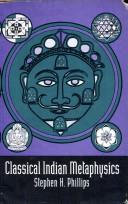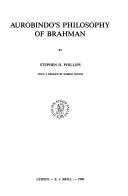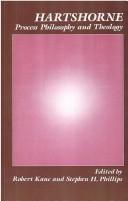| Listing 1 - 10 of 14 | << page >> |
Sort by
|
Book
ISBN: 0231144849 0231144857 9780231144858 9780231144841 Year: 2009 Publisher: New York: Columbia University Press,
Abstract | Keywords | Export | Availability | Bookmark
 Loading...
Loading...Choose an application
- Reference Manager
- EndNote
- RefWorks (Direct export to RefWorks)
For serious yoga practitioners curious to know the ancient origins of the art, Stephen Phillips, a professional philosopher and sanskritist with a long-standing personal practice, lays out the philosophies of action, knowledge, and devotion as well as the processes of meditation, reasoning, and self-analysis that formed the basis of yoga in ancient and classical India and continue to shape it today.In discussing yoga's fundamental commitments, Phillips explores traditional teachings of hatha yoga, karma yoga, bhakti yoga, and tantra, and shows how such core concepts as self-monitoring consciousness, karma, nonharmfulness (ahimsa), reincarnation, and the powers of consciousness relate to modern practice. He outlines values implicit in bhakti yoga and the tantric yoga of beauty and art and explains the occult psychologies of koshas, skandhas, and chakras. His book incorporates original translations from the early Upanishads, the Bhagavad Gita, the Yoga Sutra (the entire text), the Hatha Yoga Pradipika, and seminal tantric writings of the tenth-century Kashmiri Shaivite, Abhinava Gupta. A glossary defining more than three hundred technical terms and an extensive bibliography offer further help to nonscholars. A remarkable exploration of yoga's conceptual legacy, Yoga, Karma, and Rebirth crystallizes ideas about self and reality that unite the many incarnations of yoga.

ISBN: 8120814886 8120814894 Year: 1997 Publisher: Delhi : Motilal Banarsidass,
Abstract | Keywords | Export | Availability | Bookmark
 Loading...
Loading...Choose an application
- Reference Manager
- EndNote
- RefWorks (Direct export to RefWorks)

ISBN: 9004077650 9789004077652 900445246X Year: 1986 Publisher: Leiden : BRILL,
Abstract | Keywords | Export | Availability | Bookmark
 Loading...
Loading...Choose an application
- Reference Manager
- EndNote
- RefWorks (Direct export to RefWorks)
Brahman --- Ghose, Aurobindo, - 1872-1950 --- Ghose, Aurobindo,
Book
ISBN: 900445246X Year: 1986 Publisher: Leiden : BRILL,
Abstract | Keywords | Export | Availability | Bookmark
 Loading...
Loading...Choose an application
- Reference Manager
- EndNote
- RefWorks (Direct export to RefWorks)
Book
ISBN: 0585060657 9780585060651 1438408315 Year: 1989 Publisher: Albany State University of New York Press
Abstract | Keywords | Export | Availability | Bookmark
 Loading...
Loading...Choose an application
- Reference Manager
- EndNote
- RefWorks (Direct export to RefWorks)
Process philosophy. --- Process theology. --- Process philosophy --- Process theology --- Philosophy & Religion --- Philosophy --- Theology, Process --- Theology, Doctrinal --- Change --- Hartshorne, Charles, --- Influence.

ISBN: 0791401650 Year: 1989 Publisher: Albany, N.Y. State University of New York Press
Abstract | Keywords | Export | Availability | Bookmark
 Loading...
Loading...Choose an application
- Reference Manager
- EndNote
- RefWorks (Direct export to RefWorks)

ISBN: 0791401642 Year: 1989 Publisher: Albany State university of New York press
Abstract | Keywords | Export | Availability | Bookmark
 Loading...
Loading...Choose an application
- Reference Manager
- EndNote
- RefWorks (Direct export to RefWorks)
Process philosophy --- Process theology --- Hartshorne, Charles, --- Influence.
Book
ISBN: 8120840380 9788120840386 Year: 2016 Publisher: Delhi: Motilal Banarsidass,
Abstract | Keywords | Export | Availability | Bookmark
 Loading...
Loading...Choose an application
- Reference Manager
- EndNote
- RefWorks (Direct export to RefWorks)
Book
ISBN: 9781559340779 Year: 1993 Publisher: Mountain View (Calif.) : Mayfield,
Abstract | Keywords | Export | Availability | Bookmark
 Loading...
Loading...Choose an application
- Reference Manager
- EndNote
- RefWorks (Direct export to RefWorks)
Book
ISBN: 9781935011064 1935011065 Year: 2012 Publisher: New York: American Institute of Buddhist Studies,
Abstract | Keywords | Export | Availability | Bookmark
 Loading...
Loading...Choose an application
- Reference Manager
- EndNote
- RefWorks (Direct export to RefWorks)
The Ksanabhangasiddhi is a masterpiece of skillful reasoning by the eleventh-century Indian Buddhist philosopher Ratnakirti. This renowned scholar taught at the great Buddhist University of Vikramasila and was a master of almost every classical philosophical school that preceded him.The present work is informed by centuries of debate between Buddhist advocates of momentariness and archrival Nyaya philosophers who believed that both selves and things endure.This book is the first published translation of Ratnakirti's proof based on positive correlations, and includes a commentary explaining each step of his reasoning.
| Listing 1 - 10 of 14 | << page >> |
Sort by
|

 Search
Search Feedback
Feedback About UniCat
About UniCat  Help
Help News
News